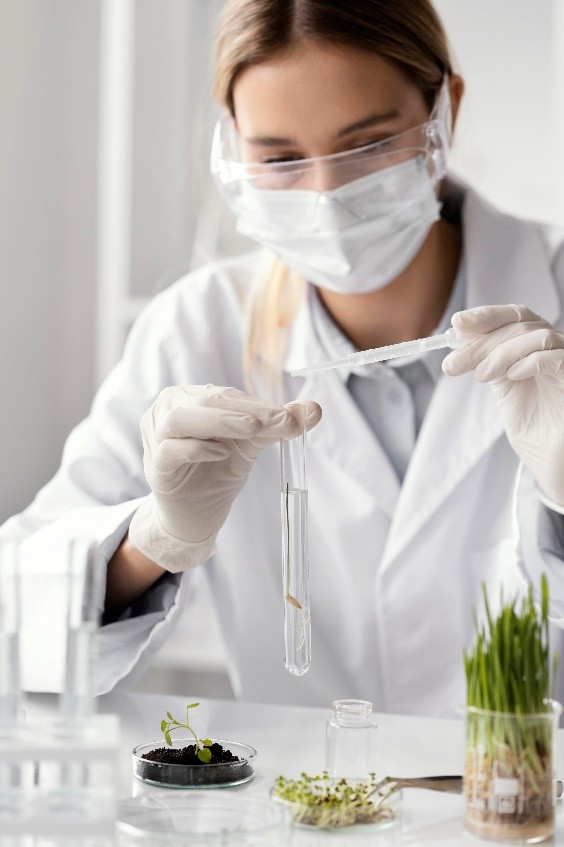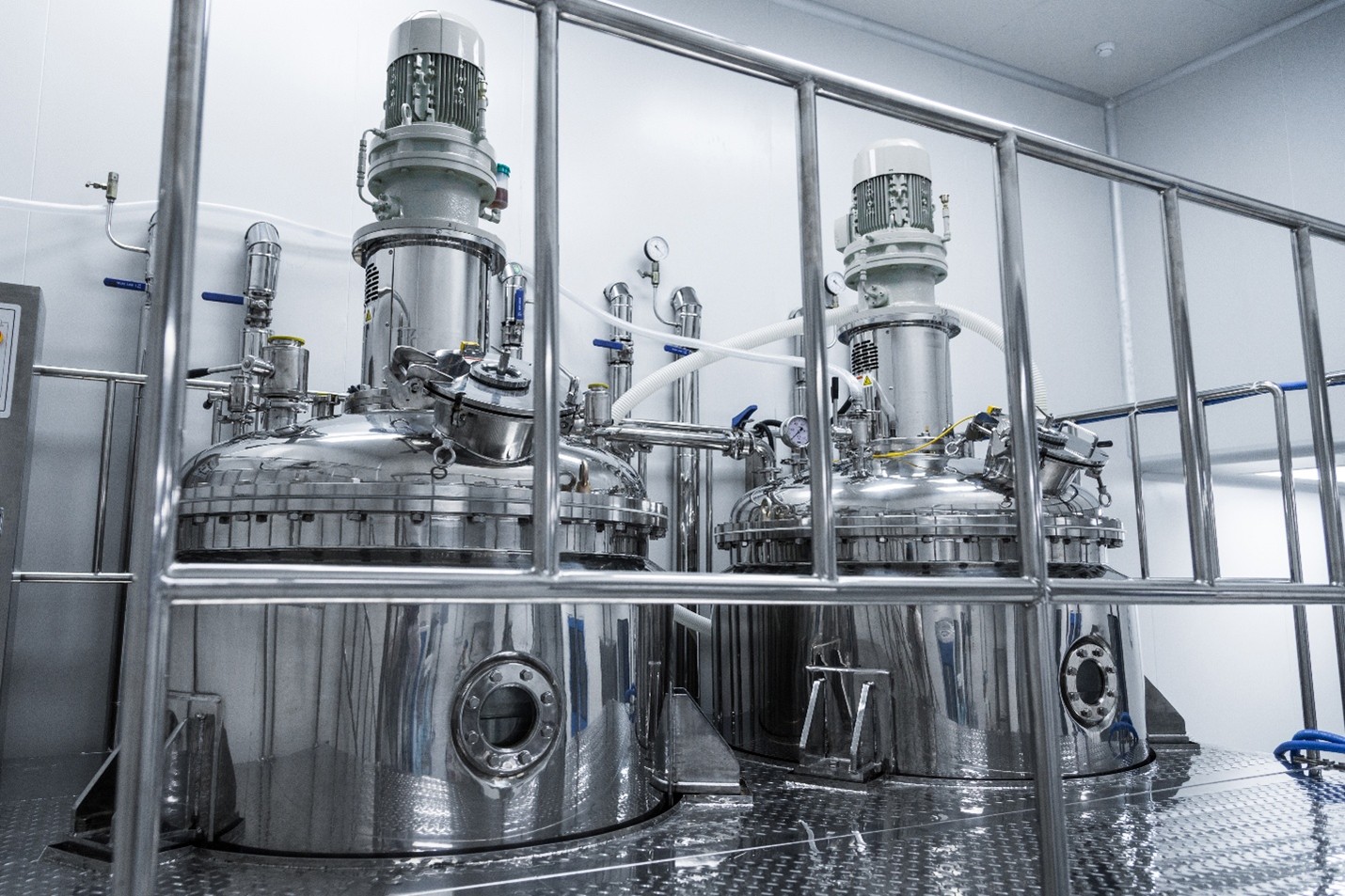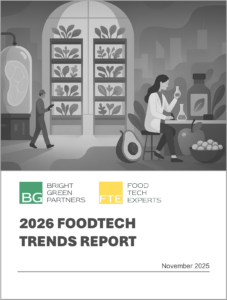What kind of request have we worked on?
Our experts cover the whole agritech and foodtech space, here are some requests we have worked with over the last years:
- Viscosity of plant-based proteins
- Additives animal health and nutrition, livestock, supplements
- Alt. colorants
- Specialty ingredient commercialization
- Upcycling of proteins
- Frozen supply chains
- Import of novel and non-novel ingredients
- Food formulation
- Agricultural distribution and fertilizer formulation
- Agronomy & soil fertility
- Commercial protein fortification
- Snack industry
and many more...
Why is cellular agriculture relevant to the global food system?
By decoupling meat production and agricultural products from animal agriculture, cellular agriculture enhances food security, reduces climate impacts, and improves public health. It also creates personalized nutrition opportunities and ensures consistent supply chains for food and biomaterials.
What technical challenges define the cellular agriculture process today?
Key issues include scaling cell culture with reliable oxygen transfer, reducing media costs, and aligning downstream processing with food-grade standards. Cellular agriculture experts apply innovative technologies to ensure reproducibility, quality, and lower cost outcomes.
How do experts keep communication clear and results measurable for clients?
Our experts provide structured reporting so clients see exactly how objectives are progressing. They align with company leadership, track innovation metrics, and share updates that keep clients informed. This expert-driven model gives clarity and helps the business consistently stay ahead.
How do experts advise on when to invest in pilots and scale-up?
Experts can support your due diligence process. They assess readiness and recommend when to invest in pilots, demonstrations, or full-scale production. They can prepare the company with clear technical and financial milestones, ensuring that business decisions on food tech are made with confidence.
Do experts work across the food system and the value chain globally?
Yes. Our experts deliver projects across the food system and the value chain worldwide. They ensure clients can expand internationally with consistent standards and insights, whether in Americas, Asia, Europe, Africa, or the world market.
Which leadership roles do experts cover?
Our network includes experts who have served as executive chairmen, vice presidents, co-founders, and heads of product management, and many more. They apply their leadership experience directly to projects, guiding company teams through scale-up, commercialization, and innovation programs.
Can experts build strategic partnerships and guide market entry?
Yes! Your expert can negotiate and structure strategic partnerships with suppliers, co-manufacturers, research hubs, or customers. They can enable your company to capture new market opportunities while protecting the business case. Experts keep clients aligned with future objectives and competitive positioning.
Do experts apply predictive analytics to match client needs?
Our experts use a variety of techniques during the engagements, they can use predictive analytics where relevant. They analyze client briefs, assess technical gaps, and match the best food tech expertise to each situation. This ensures the company and its clients receive measurable value from day one.
How do experts drive operational efficiency and help clients stay ahead?
The experts redesign processes to raise operational efficiency in R&D, supply, and scale-up. They implement food tech solutions that allow the company to stay ahead in cost, quality, and speed. Their role is to ensure the business leverages the right technology without disruption.
How do you help food industry leaders set and deliver business goals?
As your partner we map company priorities to the right specialists with a deep understanding of food technology and practical innovation. This gives the company and clients a plan the team can execute, with governance that protects business value.
How do companies benefit from working with FTE?
Our clients use our experts' insights to shape company strategy and accelerate innovation. Each company receives practical insights and/or an execution plan that the team can own. For complex programs we support with a specialist from our network so delivery in food tech stays fast while business oversight remains strong. These outcomes position clients for the future and help the team build capabilities that last.
Can you replace an expert mid-engagement if our needs change?
Yes. If priorities shift, we’ll rematch quickly to keep momentum.
Can experts join internal stand-ups or work in our tools?
Yes. Experts adapt to your collaboration stack (Slack/Teams/Drive, etc.) and can embed for a few hours per week.
What technical challenges are most common today?
Reducing media cost with serum-free formulations, scaling bioreactors with reliable oxygen transfer and mixing, and aligning downstream processing with food-grade quality and throughput are consistent focus areas in industry guidance and research.
Who are the main players active in cellular agriculture?
The cellular agriculture landscape features innovative startups and established firms advancing various applications:
- Cultivated Meat: Upside Foods , Mosa Meat, Aleph Farms, and Eat Just’s GOOD Meat are leading the development of cultured meat products.
- Cultivated Seafood: BlueNalu and Shiok Meats focus on cell-based fish and shellfish solutions.
- Cultivated Leather & Biomaterials: Modern Meadow and Qorium engineer cell-based and leather materials for fashion and life sciences.
- Molecular Farming: Companies like Moolec are working with plant hosts to produce specialty animal proteins at scale.
Why is cellular agriculture relevant?
Cellular agriculture offers a transformative path to meet global protein and material needs sustainably and ethically. By decoupling product generation from animal farming, it significantly reduces land use, water consumption, and greenhouse gas emissions compared to traditional livestock and hide production. This approach enhances food security by enabling scalable, year-round production unaffected by climate, geography, or disease. It ensures consistent texture, flavor, and nutritional profiles across batches and drives rapid innovation, allowing development of novel products such as cultured meat with tailored fat content or leather with customizable mechanical properties at unprecedented speed.
What is the difference between cellular agriculture, cultivated meat and molecular farming?
Cellular agriculture encompasses all technologies producing animal or plant-derived products without whole-organism farming. Cultivated meat specifically refers to animal muscle and fat cells cultured and structured into meat products, while molecular farming involves engineering plants or microbes to express specific molecules such as proteins (e.g., collagen or growth factors) within their biomass or fermentation systems.
What deliverables can we expect?
Examples: rapid-response memos, risk registers, TEA models and assumptions books, process flow diagrams (PFDs), pilot plans and trial reports, supplier shortlists and RFPs, regulatory pathway assessments, claim substantiation reviews, commercialization hands-on support, and many more - message us to see if we can cover your desired deliverable.
Do you support both FoodTech and AgriTech adjacencies?
Yes. Ingredients, enzymes, fermentation inputs, biomass valorization/side streams, sustainable packaging, and supply-chain optimization are all in scope among other topics including agricultural expertise.
What backgrounds do your experts come from?
Former founders and CTOs, ex-corporate R&D/ops leaders (ingredient, CPG, bioprocess), process/packaging engineers, pilot-plant managers, QA/food safety leads, sensory & nutrition scientists, LCA/claims specialists, former regulators and notified-body reviewers, commercialization leaders, and ex-investors/tech-DD specialists, and many more.
Which regulatory regimes do your experts support?
Our experts have experience in: US (FDA/USDA), EU (EFSA/Novel Foods), UK (FSA/OPSS), Singapore (SFA), Australia/NZ (FSANZ), Canada (CFIA), and others via country-specific frameworks. Our experts provide practical, experience-based guidance rather than legal advice.
Do you cover highly specialized areas like downstream processing, strain engineering, or extrusion?
Yes. Our experts cover topics across wet/dry fractionation, cell line/strain engineering, media optimization, downstream (clarification, filtration, chromatography), extrusion & texturization, aseptic processing, shelf-life, sensory, and packaging - plus commercialization and scale-up.
How is the length (and cost) of an engagement determined?
You define the scope; we recommend whether hourly advisory, daily sprint packages or a multi-month retainer fits best. Rates scale accordingly and are agreed upfront - no surprises.
Are engagements remote or onsite?
Most work is remote for speed and cost-efficiency, but onsite audits, pilot-plant visits or workshop days can be arranged worldwide.
Can I book both one-off consultations and long-term support?
Yes. Schedule a 30-60 minute expert call or embed an expert part-time for months - same streamlined process either way.
How quickly can I connect with an expert?
You can typically connect with an expert within 48 hours. Our streamlined process ensures that you get the expertise you need quickly and efficiently.
How do you select and vet your experts?
We conduct interviews and credential checks to ensure each expert meets our high standards. For long-term engagements, we also facilitate one-on-one meetings between the expert and the client to ensure a perfect fit.
What industries or projects do your experts typically work on?
Our experts have experience across various industries, from alternative proteins and sustainable agriculture to novel ingredients and large-scale bioprocessing. We support projects ranging from R&D and scale-up to commercialization and market entry.
How diverse are the topics covered by your network?
Our specialists span hundreds of FoodTech niches e.g., fermentation, biomass valorization, food-safety QA, downstream processing, sensory science, market analytics, supply-chain optimization, and more - covering every step from upstream agricultural inputs to downstream consumer.
What types of expertise are available through your platform?
Our experts cover a wide range of FoodTech specializations, including fermentation, precision fermentation, cell cultivation, mycelium technology, algae production, and more. We continuously expand our network as new innovations emerge in the FoodTech space.
What makes FoodTech Experts powered by Bright Green Partners unique?
We specialize exclusively in FoodTech, offering access to a vetted network of over 2,500 experts. Every expert is carefully vetted and matched to your specific needs, ensuring top-tier expertise in niche areas like fermentation, cell cultivation, and more.





